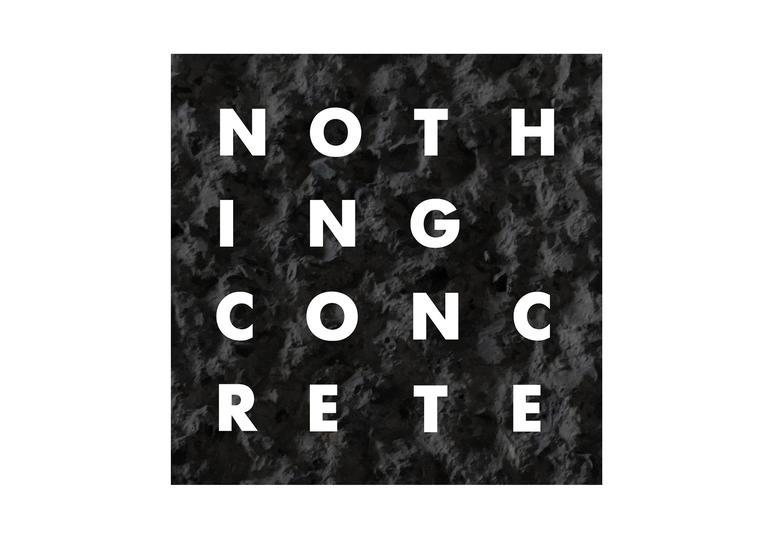JL: Hello and welcome to Nothing Concrete, the Barbican podcast. I'm Josie Long, and I'm your host for Sound Unbound, where we talk to creative people about the music they love. Today, we're in Harlem, New York City to meet James R Gaines.
James was the editor of TIME, LIFE and People magazines where, in his words, he wrote the first draft of history. But nowadays, he's more interested in reaching further back to the early enlightenment.
JG: Hello there, welcome to Harlem! [sirens]
I'm Jim Gaines, the author of 'Evening in the Palace of Reason' which is wrote about Bach that talks about his meeting with Frederick the Great. Which is about the meeting of two worlds Bach's mythopoetic world of Lutherans, spirituality, and the world of Frederick the Great, which was the world of the early enlightenment when rationality kind of overcame the world of religion. The book that I wrote is about the 'Musical Offering' and how it was made and why and what it represented in the history of the moment. It took place at the court of Frederick the Great, who really despised Bach's music. So, the evening that Bach went to Frederick's palace, in 1747, was during one of Frederick's chamber music gatherings. All musicians, it was more of a practice session, I guess, or one for him alone than it was, it certainly wouldn't have been a public event but one for the court. But as soon as he was brought the news that Bach was at the gate, he said, old Bach is here. And had him brought directly after a jarring ride from Leipzig. I mean a long ride in a bumpy coach, brought him straight to the palace and immediately presented him with this fugue subject.
So, here's the theme [plays 'Musical Offering' on piano]
JL: Very game of Jim. That was the opening section of Bach's 'Musical Offering', a piece which put his compositional metal to the test. But before we go on, this is a good point for Ben Gernon, Sound Unbound's resident conductor to do a bit of exploring.
BG: Bach is the master of the fugue. But what exactly is a fugue? It's essentially a conversation in which everyone talks about the same thing, at the same time. So you start with the subjects, which is the main theme, and then other voices join and take the subject in imitation. And then you end up with this wonderful pattern of woven, contrapuntal harmony and line. Writing a fugue is actually really difficult. It's essentially a mathematical puzzle to try and make everything sound related.
JL: Fugues were Bach's bread and butter, but Frederick the Great had a trick to play on the old master.
JG: And Frederick had devised before he arrived, a fugue subject that was almost impervious to elaboration. At the event in the evening that Bach went to the palace, his son, Carl Philip Emmanuel Bach was there because he was Frederick's harpsichordist. And there is speculation that actually only Carl Philip Emmanuel Bach could have written a subject so impervious to counterpoint. In any case, Bach did manage to improvise a three part fugue. At which point Frederick asked him for a six part fugue, and Bach took that, he said that's impossible, but took the idea back to Leipzig when he went home. And that was where he worked out the 'Musucal Offering' which is a multi movement set of variations on Frederick's theme that actually never makes that theme into a fugue but does a fugal counterpoint to it.
BG: Bach's genius was that he had this great combination of being able to write fugues that were extremely complicated. Often you would have two, three, four, five, even more voices, all singing or playing at the same time together. But beyond just the simple technical language of the music, Bach was able to convey a real strong sense of emotion and beauty. He was an extremely devout man. And when you listen to Bach, you do get a real sense of his relationship with God.
JG: Frederick said that Bach's music smelled of the church, and that's because the music of the church in those days was counterpoint. And it's true that it was a very demanding discipline. Really hard to imagine how difficult it is in this day and age. David Yearsley, a Bach scholar, likens it to alchemy. It was kind of a secret passed from teacher to student, teacher to student, teacher to student. He sent this theme and variations to Frederick and sent it with a German dedication and set it with amazingly embedded messages, telling Frederick that he was living in the wrong world, that the world was not a mechanical world of separable parts. But it was something that was knit together, it was a whole, it was almost ecological. And that was why I wanted to write the book. It was a meeting, it was precisely a meeting of the world of myth and spirituality with the world of the Enlightenment, and the belief in rationality. Bach encoded his music with meaning by the use of various kinds of phrases you could express in Baroque music, actual meaning. Frederick would not have understood that at all. And he paid no attention to the 'Musical Offering', he gave his copy of it away. Eventually it wound up in his sister's library. And he told stories about it later that were entirely clueless about the meaning of the music. So it was really not about Frederick understanding it, it was about Bach saying it and stating emphatically the position that he occupied in his world and categorically refuting the world of Frederick.
Frederick lived in the world of the early Enlightenment, when all was going to be known, and there was no mystery to life. God was a joke. Frederick was known for his religious tolerance, but it's because he was, he was contemptuous of all religions equally. So, they lived in literally opposite worlds and began a point where the world shifted to a point where spirituality was something that you lived with every day. The Devil had form and face and would take you away and burn you for eternity if you did the wrong thing. And the world of Frederick where that was just nonsense. So I was interested in how that competition played out, and where it ended up. The conflict remains, we are still conflicted about whether spiritual meaning is the point of life, or whether we're just kidding ourselves about that. And really what we have to strive for is further knowledge. These two ideas still stand opposed. We have not resolved them, and maybe we will never resolve it.
BG: The 'Musical Offering' can be quite a challenging listen, and it's absolutely more on the monastic side of things. But if you were to listen to his Brandenburg Concerto for example, they are so full of life. There's a wonderful sense of vitality in them. So what's really obvious to me as a conductor is that Bach had this extraordinary ability to straddle a whole wide range of human emotion and thought.
JG: From the time I was a kid, I played Bach, Bach is most of what I've always played. And I think that that's kind of my wish for religion, because I hear this unearthly beauty in Bach, and I feel it as I'm playing it. It's first, for one thing it's a real challenge, because the voices are so important to bring out and sometimes you're dealing with five or six voices. And even when you're doing two or three, the fingering is so difficult, and the subtlety that you have to learn to bring out voices in the midst of all the other voices is challenging. And it's interesting, but it's also when you get it right, there's no feeling quite like it.
BG: As a conductor, I deliberately made a decision not to conduct Baroque music. And that's simply because there's a huge question about whether you should perform this music on original instruments, or contemporary modern instruments that we have today. The orchestral sound that we hear today was extremely different from what Bach had available to him. Indeed, string players would pay on gut strings, which is completely different to what we do now. And the brass, some of them wouldn't even have valves, actually, at this point. So they were consigned to only a few notes. But as a listener, I love listening to Baroque music, because I think it's so busy. It's so exciting. It's so wonderful. And it just puts you in such a good mood every time you listen to it. But I think if I was to perform this, I would have to go into another degree in performance practice, because there's so much about this world that is shrouded in mystery. There is some really great conductors like Sir John Elliott Gardner, you might want to listen to, also Roger Norrington and they are real experts in this area. But I really admire the work, and I really love the sense of spectacle that Baroque music creates.
JG: It's just beautiful. And I've always been drawn, you know, one of the controversial things that I get so much grief for in the book is that I say when you listen to Bach, and Mozart side by side, Mozart is just missing something. It's tinkly. It's all about melody, and it doesn't have the profundity of Bach's music. And at a couple points in the book I just said, you know, I can't go any further, put down the book and put on the music. Because the best part of Bach is just unspeakable.
JL: Thanks to James R Gaines, Ben Gernon and to you for listening to this episode of sound unbound with me Josie Long. In the next episode, we'll be talking to the choreographer and founder of Ballet Black, Cassa Pancho, about Ravel.
CP: 'I'd never considered that you could play a piece of music with an attitude. And I thought that was just really, really funny that they thought that the version we were using was a very pompous and serious version'.
JL: Thanks for listening to Sound Unbound, part of Nothing Concrete from the Barbican. To listen to the rest of the series, subscribe to Nothing Concrete on Acast, Spotify or wherever you find your podcast. And if you'd like to hear more of the music connected to this episode, listen and subscribe to the Barbican's Sound Unbound playlist on Spotify. Sound Unbound is produced by Freya Hellier for Loftus Media. The assistant producer is Alex Quinn.


